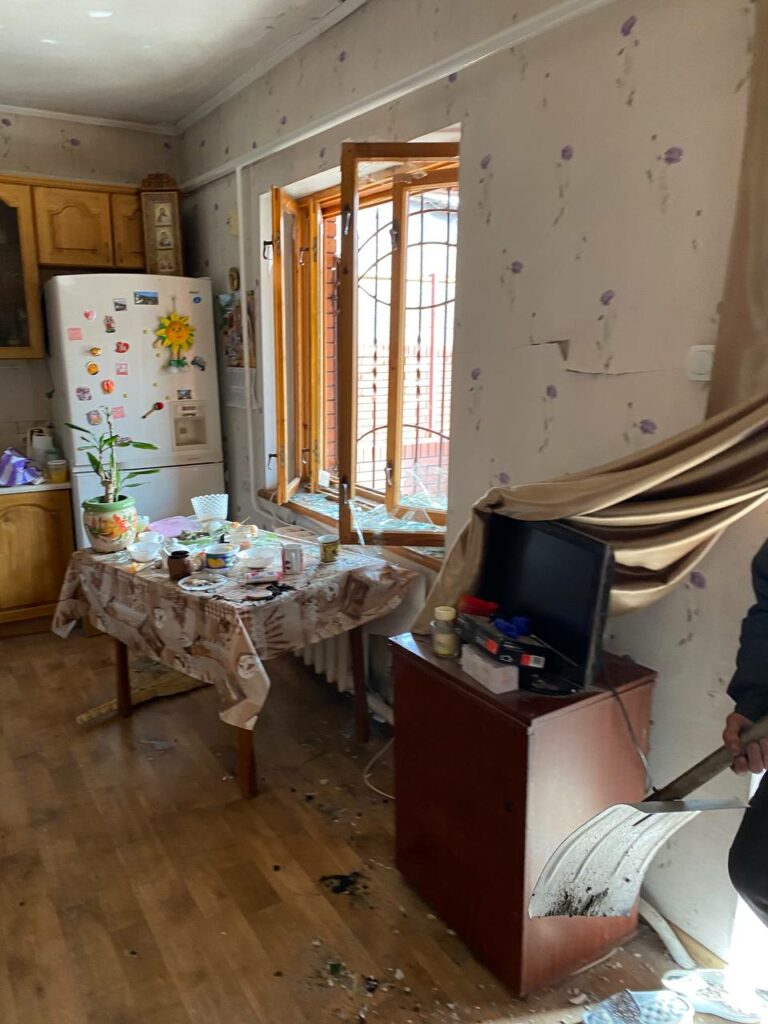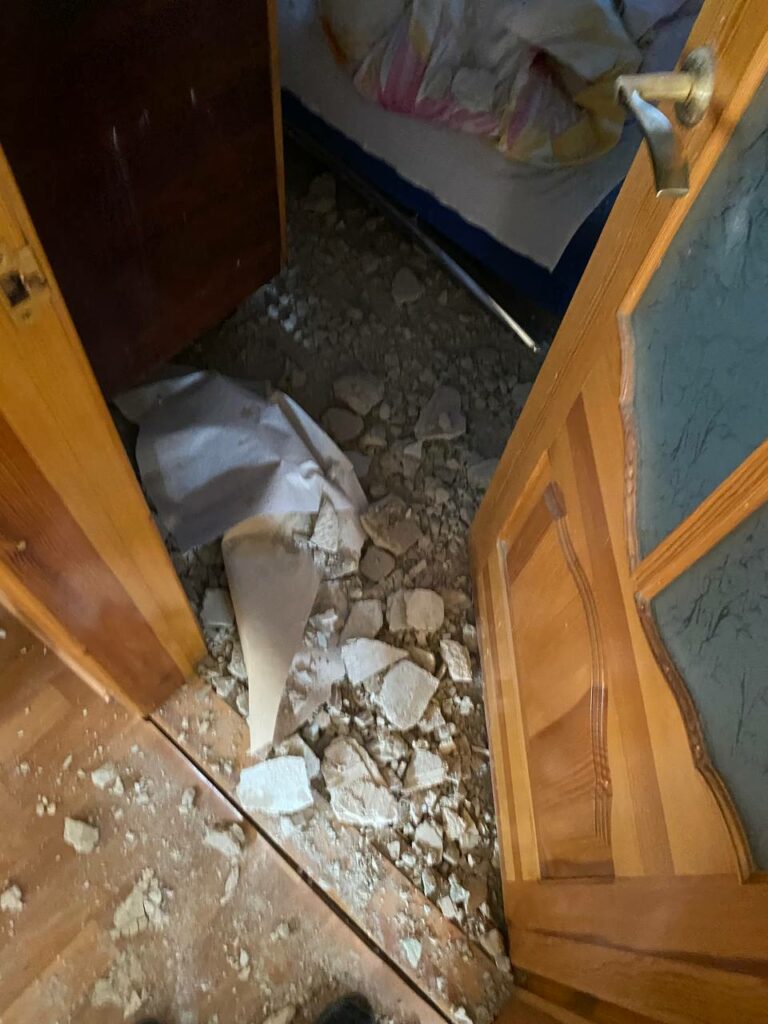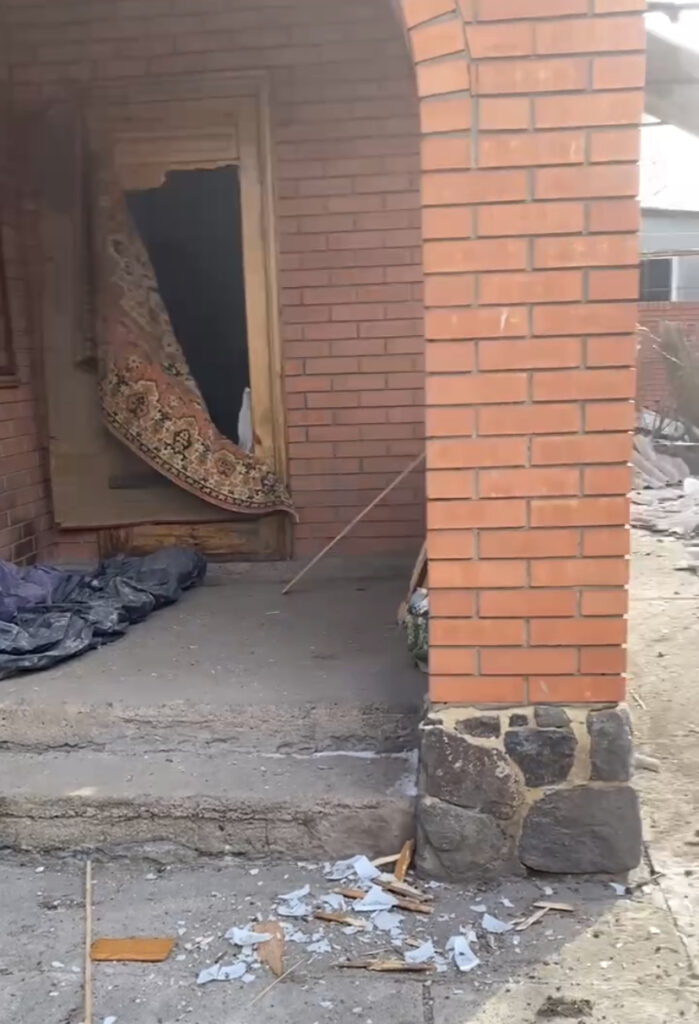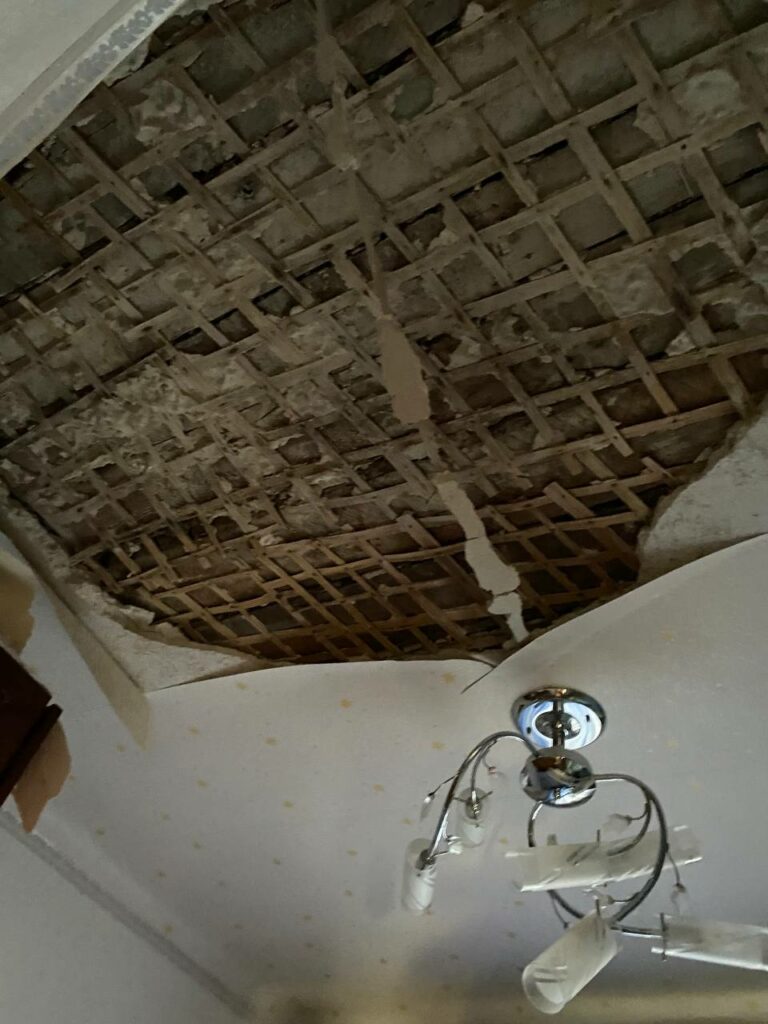A step from a luxurious past to an uncertain future is by far not what Katya Zozulia imagined a few months ago. She loved her Mariupol, was happy to watch it change, breathed the sea, dreamed, and believed that it would always be so. Now she knows how melted snow tastes.
“In 2014, we realized that we do not want any Russia, we do not want anything other than Ukraine”
She is bright not only in appearance but also in nature. It is so easy to talk to her that you can walk for hours along an embankment under the linden trees, drink delicious Uzhhorod coffee and laugh. Until an aircraft hums overhead. Then she freezes warily. And if it flies very close, she covers her ears with her hands. As soon as the plane flies away, she exhales and returns to reality. This is Katya Zozulia’s phobia acquired under the Russian bombing of Mariupol. The girl says that she has always appreciated every moment of life, loved to walk along the coast of the Sea of Azov in her world’s best Mariupol, danced passionately and taught other girls to love themselves. On February 23, she finished training at 10 p.m. and was going to go to work in the morning. But the morning of February 24, 2022 began with her friend’s message: “Katyusha, it’s started. The whole of Ukraine is being shelled. There is nowhere to run yet.”
Katya lived in Mariupol since childhood. Her worldview was not limited to that city, so she assures: “When we left Mariupol, we realized that it was the best city in the world. In the last few years, Mariupol became European: with beautiful squares, parks, lawns, tulips. I think every European would have been delighted if he came there. And the sea. You could live, do everyday things, and then come to the sea and the world would stop. You’re sad – you come to the sea, you feel good – you come to the sea. It’s like a good friend, a companion you can always come to and enjoy his company. They made a beautiful pier in the city; there were many cafes with delicious coffee. You sit on the pier, people walk, you drink coffee, the sun shines, and the surf rustles. It was such love! I cannot find the right words. I miss it so much.”
I learned about the war firsthand back in 2014. Then the city was under occupation from May to June. However, even after the liberation, the Eastern district was shelled from time to time. Although Katya lived in the Central and the explosions were far away, life next door to the war affected her anyway.
“There really were some older people waiting for the return of the Soviet Union. But young people did not even think of it. In 2014, we realized that we do not want any Russia; we do not want anything other than Ukraine. It was as if we had something, but weren’t aware of it, didn’t appreciate it, and when they tried to take it away, we understood. We are Ukrainians and we are ready to fight for it. We knew that Mariupol had not been taken and would not be taken.
On February 24, it all started in the Eastern. Then the Russian army began to move on, the explosions were closer. We knew they had already captured the Eastern and the Left Bank districts.”
“We were preparing, but did not believe in a full-scale offensive until the end”
The people of Mariupol trusted what they saw: “If the elite build something, nothing will happen.” However, the situation in the city escalated, a threat seemed to be boiling in the air and it was more and more difficult to drive away scary thoughts.
“I and my kith and kins were preparing, but did not believe in a full-scale offensive until the end. I had my suitcase packed, my car fueled and I knew I would be able to leave if the time came. On February 23, I had a workout until 10 p.m. There was some bad feeling, but I was ready to go to work in the morning. On February 24, I had to wake up at 7 a.m. and go to work. But I woke up at 6 a.m. after my friend texted me that the war had begun.”
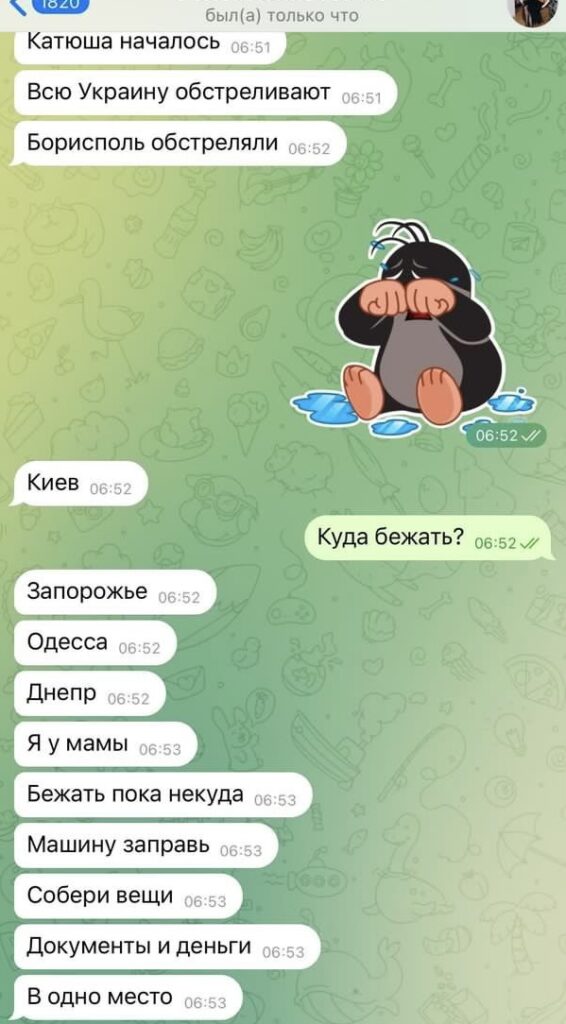
“When there is no connection, your family is those around you in the shelter”
Katya moved from her apartment to her mother’s private house – it seemed safer there, because there was a basement. They did not leave the city – her mother did not want to leave her dog, cat and grandmother, and Katya was afraid to go on her own. Later, the girl’s friends joined her, her mother and her boyfriend. The five of them started living together.
“When there is no connection, your family is those around you in the shelter. We became so close. I really consider my friends family. Families don’t go through what we did in several years.”
First, connection disappeared. There was no news from the outside, and I did not want to listen to the propaganda of the so-called DNR, which was broadcast on the radio. Then light went out. Then water. Finally, gas. There were only sounds of explosions.
Rockets and shells flew overhead, and people were walking in search of food and water. They stood in lines for hours. Some would leave and never return. At first, Katya and her family also went out for water and food, but then it became so dangerous that they stayed in the house most of the time.
“Melted snow tastes disgusting. Don’t ever try it”
On March 7, they cut off gas. The day was relatively quiet, so Katya and her family were able to go out and see if there was anything left in the shops.
“It seemed as if it was May 1 and everyone went outside to cook shashlyk, not because there was no gas. As soon as communications disappeared, everything was looted in the shops. People cannot be blamed for this, because everyone wants to eat. Shops were looted even by volunteers: there was food, but there was no one to sell it. And people in bomb shelters needed it. Therefore, in my opinion, looting is normal during the war. They even took carpets from shops – people slept on them in shelters, and they used them to cover windows and doors in houses. Large hardware stores left a few days before the looting began. But in war, it is matches, water, oil, food, toilet paper, wet wipes that have real value, not clothes and expensive equipment.”
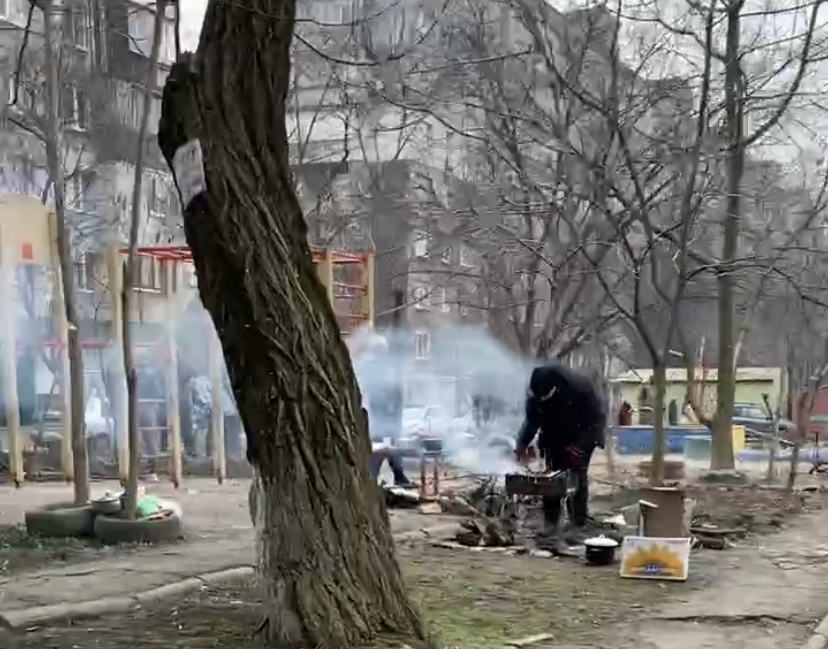
Katya and her family had some food supplies, so they ate once or twice a day. There was still snow in the city, so they put buckets under house drains to get water.
“We even brushed our teeth with that water. But it’s disgusting. Never try it. That water was not enough, so over time we stopped washing dishes and used disposable dishes several times. We only dreamed of washing ourselves. We cooked on water, for which we queued for hours.”
“We heard an explosion and a window frame started flying at me very slowly.”
At first, we were hiding behind a sofa between two walls, and went to the shelter during air raids. Over time, the shelling got closer and we understood that we’d better hide. To distract our minds, we played cards, checkers, battleship, looked at photos from a life in which everything was well.
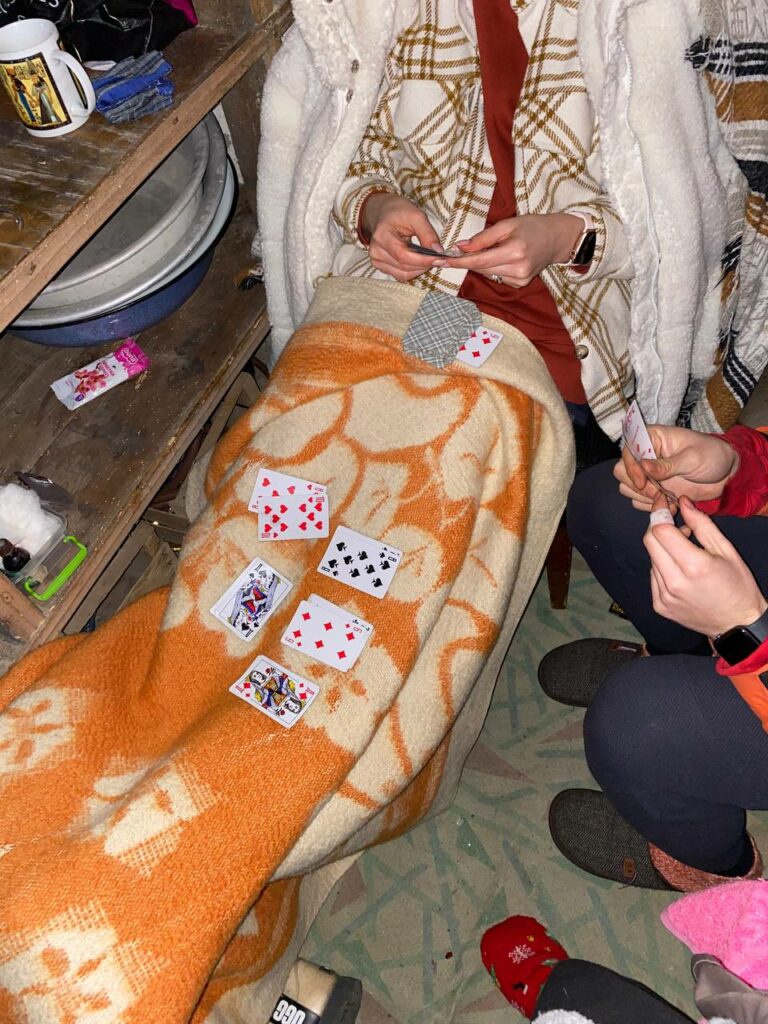
Everything changed when air raids began. Then the 2×2 meter basement, which only had enough room for shelves with canned food, became our permanent home, and it was no longer possible to distract ourselves from fear and tension. The walls of the house began to crumble.
Katya will remember the night of March 9 the rest of her life: “The plane was buzzing very loudly over the house, it lit through the windows first on one side and then on the other and flew away. That was the first time. Since then we slept only in the basement. The temperature was below zero, so we slept sitting on stools or lying sideways in two jackets under blankets. It wasn’t very comfortable.”
It became scary to leave the shelter. Everyone knew that planes would drop bombs. And if during the shelling it was clear where to and where from it was flying, planes were absolutely unpredictable.
“We enjoyed life for short periods of time, and then everything would start all over again. That time, at breakfast, we heard a plane flying. I put a fork to my mouth and waited to see what would happen. It flew by and began to return. There was an explosion and a window frame started flying at me very slowly. Everyone fell on the floor, the window fell on my back and hit my friend in the temple. We get up, run to the basement, blood flows from my friend’s temple, she faints, we bring her to life. We call that day our second birthday.”
It turned out that the bomb was dropped by a Russian plane three houses away from the one where Katya lived with her family. The owner of the house died under the rubble. The neighbor opposite, who was outside, was killed by shards.
“There was no house there. The ground was so flat you wouldn’t have believed there had been a house there an hour before. The blast was so strong there wasn’t a single surviving house around.”
“Let it hit us, but so that we wouldn’t suffer”
“All you can think about during an air bombing is how much longer you will live and where it will hit this time. You shout: “Plane!!!” and all people run to the basement, cover each other with their bodies, curl up and wait. You seem to stop breathing. You close your eyes and wait. And when an air bomb hits … There are moments in movies when the screen shakes. You have the same screen in life. I gritted my teeth in fear so much that … As I was leaving the city, I felt my jaw hurt and I couldn’t understand why. And then I remembered that I had gritted my teeth in fear for several days in a row.
Whatever used to be interesting to you becomes so unimportant and unnecessary … You think, if it hits me, let it happen quickly and immediately so that I wouldn’t be injured, disabled, wouldn’t lie bleeding. Let it hit me, but so that I wouldn’t suffer. At that moment, you are not afraid for life. You are afraid of being crippled. And it’s not scary to die anymore.”

Вхідні двері вибило і їх закрили килимом 
“How can it get any worse? But it gets worse every day”
“It seems: how can it get any worse? But it gets worse every day. Missiles hit the neighboring houses. Then they cut off gas and you cook outside. How can it get any worse? And then a window frame falls on you. How can it get any worse? But it gets worse every day.”
Since March 10, Russian planes had bombed the street where Katya and her family lived. It was as dark in the house as in the basement – the broken windows were covered with carpets. The next day, a missile hit the house across the street and the gate of Katya’s mother’s house got blown off during the blast. The dog ran away, and so did the cat.
“You think again: how can it get any worse? We had a battery above the basement, in which the water froze. The battery burst and water began to flow into the basement. We tried to put something under the battery so that we would not be flooded. At that time, my mother’s boyfriend was outside. The shelling started again. The blow was very strong. The air bomb hit a nearby house and a car caught fire. The fire spread to the roof of the neighbor’s house, and from there to ours. We did not know about that because we were waiting for the shelling to end. My mother’s boyfriend, who miraculously survived, came running and told us to take the essentials and run out. Our house was on fire.”
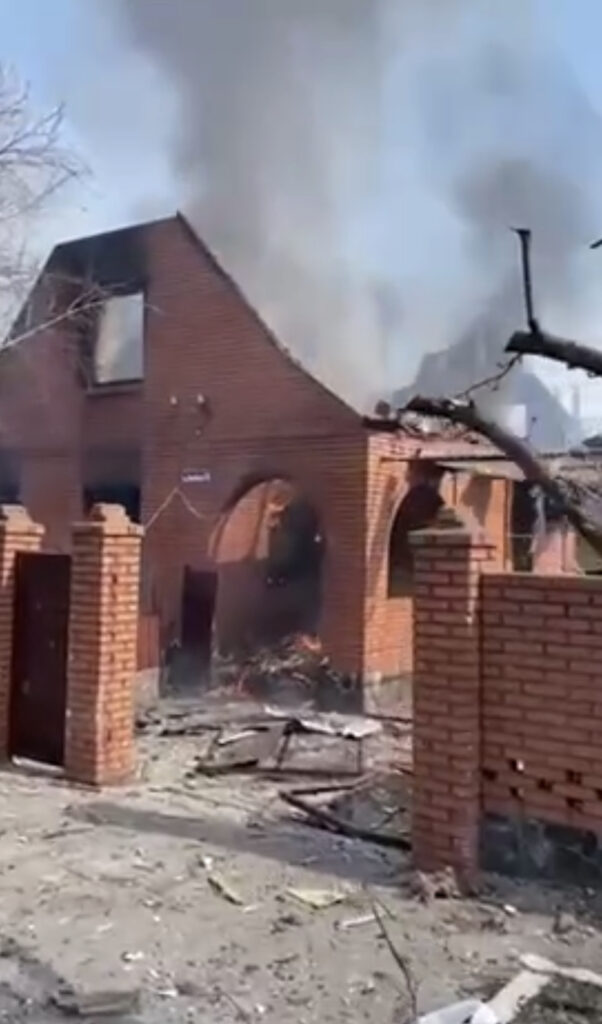
We managed to grab water and food. Katya ran with just a backpack with her documents and a laptop in it. When we found ourselves outside for the first time in a few days, we saw emptiness and ruins. Hysterical and shocked, Katya and her family ran through once familiar streets and did not recognize them. The nearest shelter was in the TERRASPORT complex, where the girl’s friends had worked as coaches. 2,500 people already lived in the basements, corridors and premises of the sports complex.
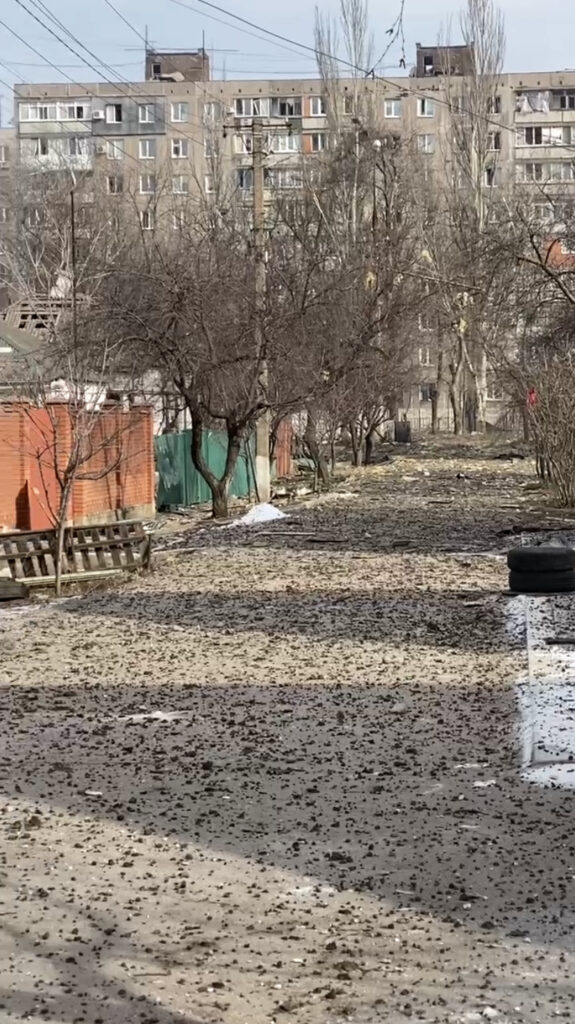
“I would rather die en route than in a bomb shelter”
More information appeared in the shelter. It turned out that people were trying to leave through Berdyansk.
“There were no humanitarian corridors – everything was at your own risk. If you want, leave. If you die, you die. Opinions differed: I wanted to leave desperately. I would rather die en route than in a bomb shelter. You no longer have a house, you have nothing. But you have a car. Only you can make the choice: to die in a shelter or try to leave in your car. I was serious. I said that if we didn’t leave and the car would be smashed or burnt down – as was the case with many – I would not forgive it. And everyone agreed.”
Katya and her family joined a convoy to leave. It was important to move in the convoy and not alone, because it was easier to avoid problems: broken wires, shell fragments, mines. They drove past burnt tanks and broken buses.
“At that time, the shelling continues. You are stressed, you drive your car, passengers duck down in the car, and you cannot do this because you have to watch the road so that not to have flat tyres, take everyone out and stay alive. And here they say that we are turning back. That’s the way we drove. There was a huge queue at the exit from the city. Planes and rockets are flying and you cannot hide. If it hits, you will stay in this car forever.”
“Are you happy?” – “Yes, we are.”
For three weeks in the basement, Katya and her family shared the same dream: to drive the car, listen to music quietly, watch the sunset and not to hear the planes. It came true.
“It was like a picture from our dream: we go, we all cry, because we understand that… I looked in the mirror and asked: “Are you happy?” – “Yes, we are.” We open the windows, we enjoy the silence, the music plays, the sun goes down and we understand that we have left, we are alive and everything will be fine. It’s as if security is felt physically.”
The greatest happiness after leaving Mariupol, says Katya, was a hot shower.
“Just to stand under a hot shower and enjoy. We had not washed for two weeks. And to stand under the hot shower was such an indescribably beautiful happiness, as if your second biggest dream had come true.”
“You are now drinking coffee for those who cannot”
From the author: This section is an afterword for those who blame themselves or rebuke others for …living. Katya’s words pushed me to allow myself joy, at least sometimes. Feel alive despite everything. And finally go to the dancehall, where Katya Zozulia now teaches dancing in Uzhgorod. Because I may never have this opportunity again.
Katya says: “My sister felt guilty that she could do something we could not do in Mariupol. But it didn’t help us there, and it didn’t help her here. You don’t need to spend a few weeks under bombardment and say goodbye to life in order to drink coffee and enjoy moments. Therefore, my advice to those who live in relatively peaceful cities is to take this opportunity. Live your usual life, do what you can. Drink coffee, enjoy, work and rejoice. Because you may never have this opportunity again. And now you have this opportunity. Even though there’s a war going on and this ought not to be forgotten, we cannot live in constant negativity and suffering.”
“Now I feel like I am living three lives. On the one hand, I drink coffee, go back to work and try to enjoy little things. On the other hand, my heart is in Mariupol. And the third thing is the future and uncertainty. It is as if your soul has been taken away from you and you cannot find it. It remained there. You seem to enjoy yourselves, but somehow not really. I’ve always appreciated what I had. And they took it away. So you need to appreciate what you have. Even those little things.”
“I loved my city with all my heart. I love Ukraine with all my heart. That’s why I’m angry only with the Russians who took everything we had from us. They took away the life I lived and loved. In the 21st century, one cannot turn a blind eye to the facts and tell your own truth. Those who believe in Russian propaganda are accomplices. I have a grudge against Russians. Against those people who say they can do nothing. I say that my house was destroyed, and they say that they were disconnected from Instagram and not allowed to go to Europe.”
“I want Mariupol to be Ukrainian, to be quickly rebuilt so that we could return to our lives. But it will never be the same as it used to be.”
Ksenia Shokina. Uzhhorod
31.05.2022
The material was created under the joint project of Ukraine Crisis Media Center and the Estonian Center for International Development with the financial support of the US Embassy in Kyiv and the Ministry of Foreign Affairs of Estonia.


